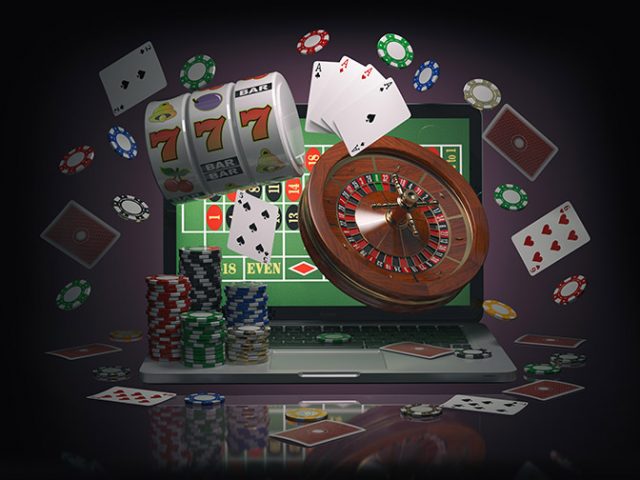In 2023, the gaming industry was on track to break revenue records, with a first-half income of $29.16 billion—18 percent higher than last year. Slot machines are a big part of this success, drawing millions of players in both online and land-based casinos.
Slot machines are famous for their exciting gameplay and the chance to win big. Understanding their work involves looking at their design and the technology behind them. Online slots use random number generators (RNGs) to ensure each spin is random and fair, which helps maintain trust in the game.
Check out this comprehensive article for more details on how online slots work, including their design and fairness policies. It explains everything you need to know about slot machines.
The Basics Of Slot Machines
At their core, slot machines are gaming devices that allow players to wager money on spinning reels’ outcomes. These machines typically feature a set of three or five reels with various symbols printed. When a player pulls a lever or presses a button, these reels spin and then randomly stop. The aim is to align matching symbols across predefined paylines to win prizes.
Each symbol on a reel is associated with a specific probability of appearing. For instance, a cherry might occur more frequently than a jackpot symbol. The arrangement of symbols on the reels and the number of potential winning combinations determine the odds of winning and the corresponding payouts.
Math-based Approach To Win Slot Games
The casinos and slot machines stand out as one of the most popular attractions: the flashing lights and the ringing bells. These iconic machines have a fascinating history and operate on intricate mathematical principles that determine their functionality.
In this section, we will get into the mechanics of slot machines, focusing on the mathematical algorithms that govern their behavior.
Random Number Generation
The key to the operation of slot machines lies in their use of random number generation (RNG) technology. Modern slot machines are controlled by sophisticated computer programs that use complex algorithms to ensure random outcomes.
The RNG is constantly running, even when the machine is not being played. When a player initiates a spin, the RNG generates a sequence of numbers corresponding to the reels’ positions. These numbers are mapped onto specific reel positions, determining the spin’s outcome.
Paylines And Payouts
The best online slots typically feature multiple paylines, the lines across the reels where winning combinations must appear to yield a payout. Traditionally, players win by aligning matching symbols along these paylines. The more paylines a machine has, the higher the potential number of winning combinations.
Payouts are determined based on the probability of achieving specific symbol combinations. Each winning combination is associated with a particular payout, which may be displayed on the machine’s paytable. The paytable also indicates the game’s rules, including the value of each symbol and the requirements for triggering bonuses or jackpots.
Return to Player (RTP)
The Return to Player (RTP) percentage is essential in understanding slot machines. This metric represents the portion of all wagered money a slot machine is designed to pay back to players over time. For example, a machine with an RTP of 95% is programmed to return $95 for every $100 wagered over its lifespan.
The RTP is calculated based on the mathematical probabilities of the game’s outcomes. An average figure reflects the machine’s long-term performance and does not indicate short-term results. However, the RTP provides valuable information to players about the odds of winning on a particular machine.
The House Edge
Conversely, the house edge is the casino’s advantage over players, built into the game’s design. It represents the difference between the true odds of a bet paying out and the actual odds the casino gives. In slot machines, the house edge is reflected in the RTP.
For example, if a slot machine has an RTP of 95%, the house edge is 5%. This means the casino will retain 5% of all wagers placed on that machine over time as profit. The house edge ensures that casinos are profitable in the long run, regardless of individual player outcomes.
Volatility And Variance
Another critical aspect of slot machines is volatility or variance. This refers to the risk associated with playing a particular game. High-volatility slots offer larger payouts but less frequently, while low-volatility slots offer smaller payouts more regularly.
Understanding volatility is essential for players to manage their bankroll effectively. High-volatility slots require more significant bankrolls and patience, whereas low-volatility slots provide more consistent, albeit smaller, wins.
Progressive Jackpots
Many slot machines feature progressive jackpots, continuously accumulating prizes that increase until they are won. A small percentage of each wager placed on a progressive slot contributes to the jackpot, allowing it to multiply.
The odds of winning a progressive jackpot are typically much lower than regular payouts, reflecting the substantial potential payout. These jackpots can reach life-changing sums of money and are a significant draw for many players.
Regulation and Fairness
Gaming authorities enforce strict regulations on slot machines to ensure fairness and integrity. These regulations govern RNG certification, payout percentages, and responsible gaming measures.
Gaming authorities rigorously test slot machines to verify that they meet predetermined standards of fairness. Additionally, casinos are required to display RTP percentages and other pertinent information to inform players about their odds of winning.
Final Thoughts: The Maths Behind Slots Odds
Slot machines are more than just games of chance—they are sophisticated devices driven by mathematical algorithms and RNG technology.
The complicated mathematics behind slot machines determine everything from symbol probabilities to payout percentages, ensuring players a fair and thrilling gaming experience.
By understanding the mathematics behind slot machines, players can make informed decisions about their gameplay and maximize their enjoyment.
Whether you’re a casual player or a seasoned gambler, appreciating the math behind the machines adds a new dimension to the excitement of playing slots.
By Chris Bates








